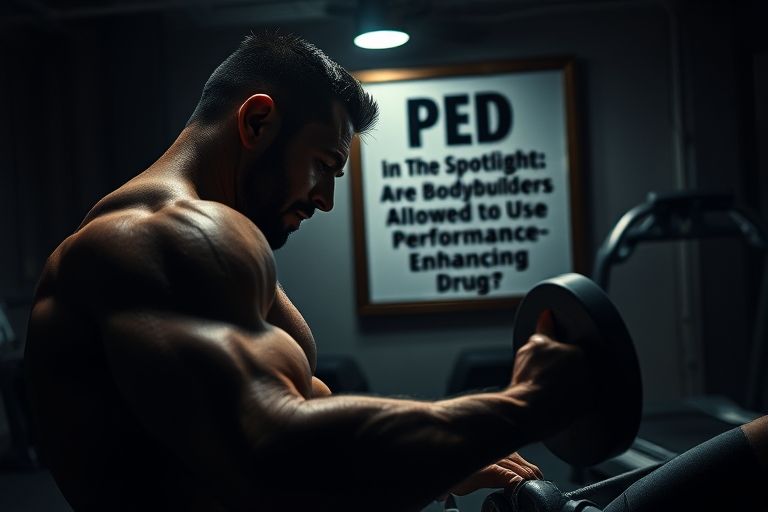

Bodybuilding is a highly competitive sport that demands incredible dedication, discipline, and hard work. Athletes in this field push their bodies to the limit to achieve the sculpted physiques that are the hallmark of the sport. However, there has always been a debate surrounding the use of performance enhancing drugs (PEDs) in bodybuilding. In this article, we will explore the rules and regulations governing PED use in bodybuilding and delve into the controversies and consequences associated with it.
Performance enhancing drugs, also known as PEDs, refer to substances or methods that are used to enhance athletic performance. These substances can include anabolic steroids, growth hormones, stimulants, diuretics, and various other substances that can increase strength, endurance, and muscle mass.
While some of these substances may have legitimate medical uses, their use in sports is generally considered to be unethical and against the principles of fair play. The use of PEDs can provide athletes with an unfair advantage over their competitors, compromising the integrity of the sport.
In an effort to maintain a level playing field and promote fair competition, most professional bodybuilding federations have strict regulations and testing protocols in place to detect and deter the use of PEDs.
The International Federation of Bodybuilding and Fitness (IFBB), the largest and most recognized bodybuilding organization in the world, has a comprehensive anti-doping program in place. Athletes competing in IFBB-sanctioned events are subject to random drug testing, both in and out of competition. The use of prohibited substances can result in disqualification, suspension, and loss of titles.
Additionally, the World Anti-Doping Agency (WADA) sets the standards for drug testing in sports internationally. Many bodybuilding federations align their anti-doping policies with WADA's guidelines to ensure consistency and fairness across different competitions.
Despite the strict regulations and testing protocols, there is still a significant amount of controversy surrounding the use of PEDs in bodybuilding. Some argue that the use of these substances is rampant and widespread, giving certain athletes an unfair advantage over their competitors.
Others believe that the use of PEDs is a personal choice and that athletes should be allowed to make their own decisions regarding their bodies and performance. They argue that as long as the use of PEDs is not harmful to the athlete or others, it should be permitted.
However, the majority of professional bodybuilding organizations and governing bodies maintain a zero-tolerance policy towards PEDs. They believe that allowing their use would undermine the credibility of the sport and compromise the health and safety of the athletes.
While the use of PEDs may provide short-term gains in muscle mass and performance, it can have severe long-term health consequences. The misuse of anabolic steroids, for example, can lead to hormonal imbalances, liver damage, cardiovascular problems, and psychiatric disorders.
Furthermore, athletes caught using PEDs face serious consequences, including bans, fines, and damage to their reputation. In some cases, their entire careers may be tarnished, and they may lose all credibility within the sport.
In conclusion, the use of performance enhancing drugs in bodybuilding is a contentious issue. While some argue for personal freedom and choice, the majority of professional bodybuilding organizations maintain strict regulations to ensure fair competition and protect the health and safety of athletes. It is important for bodybuilders to understand the consequences of PED use and make informed decisions that prioritize their long-term well-being and the integrity of the sport.